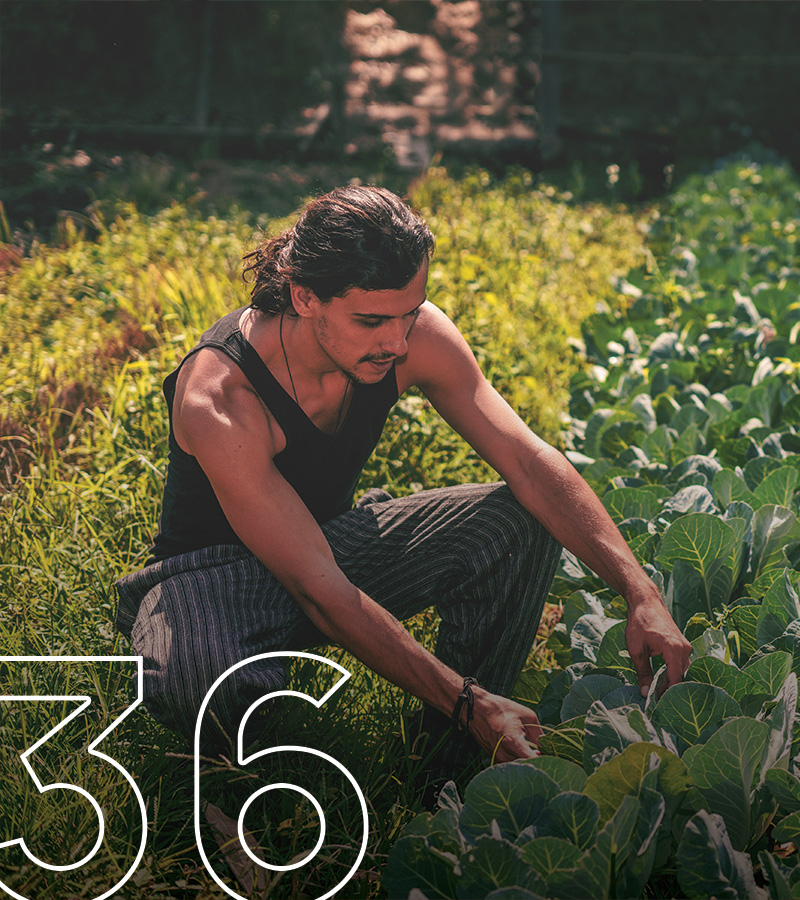Step 12 Devotional: Talking the Walk
Personal moral inventory is not without its own set of tools.
You need a “mirror” to help prompt and guide you to introspection, change, and growth.
We’ve dived deep into a lot of topics over the course of this devotional series. We’ve learned how to give up power and control to God. We’ve learned to stop hiding and denying our struggles and shortcomings. And we’ve learned how to remove deep hurt and build new habits in our lives. All of these things are tough but amazing life-changing lessons to learn. But there’s one thing missing. We don’t want the joy, freedom, and peace that we’ve experienced in recovery to terminate on us. We want others to experience the same peace, joy, and freedom we have, right? That’s why we have to learn to “talk the walk.”
Sharing our experience and knowledge from the years spent in recovery might come naturally and passionately for some. Others might need more of a prodding. No matter which type of person you find yourself to be, we all remember how we felt at the start of recovery. We found the “preaching” of others farther along to be anything between mildly annoying to rage-inducing. We have to remember to consider where people are in their response to change, growth and criticism. They might not be ready and willing to tackle the same mountains you are.
Published
11/30/2022
Category
Faith
Step 12 of Recovery
Having had a spiritual awakening as the result of these steps, we tried to carry this message to others & to practice these principles in all our affairs.
There’s another thing that a lot of us need to remember later on in recovery. It’s where we were when we first came out of our addiction and how far we’ve come since then. Keeping something like this in mind helps to give you patience when dealing with others not as far along as you. Triggers and urges might not hit us as hard and frequently as they used to. That doesn’t mean we can’t still empathize with others when they struggle with giving in to those temptations. It might be secondhand nature to keep commitments and utilize accountability these days. But we can still be patient and understanding with others when they aren’t as diligent.
Speaking of being diligent, the bible talks a lot about being diligent when it comes to the weightier matters of the heart, mind, and soul. It’s so easy to slack off on some things, even later on in recovery. We think to ourselves “Look how far I’ve come! I’ve earned a little bit of rest.” Not only can that be dangerous to the progress we’ve made, but it can also hold us back from the true end of recovery. Paul talks extensively about diligence in his letters to Timothy. If anyone is a poster boy for life-change and diligence, it’s the apostle Paul. Prior to his conversion, Paul had things seriously backwards. His job, yes job, was to kill Christians. Talk about a one-eighty!
Do not neglect your gift, which was given you through prophecy when the body of elders laid their hands on you. Be diligent in these matters; give yourself wholly to them, so that everyone may see your progress. Watch your life and doctrine closely. Persevere in them, because if you do, you will save both yourself and your hearers.
1 Timothy 4:14-16
When Paul talks about “gifts,” he’s specifically talking about spiritual gifts. Spiritual gifts are a highly debated topic among more scholarly Christians and are too deep to properly discuss in this article. However, we can still consider the gift of recovery and the newfound skills and habits within our recovery journey as these gifts. When we relocate the time, money, and mental energy spent on our addiction to things like playing an instrument, painting portraits, cooking for others, or going to the gym with friends, those things become a vehicle for vibrant recovery. They can then become a platform to help others recover and become something greater than just those “hobbies.”
Timothy is calling us to be “diligent” in the recovery pathways we have chosen in life. And what’s the reasoning and purpose for this diligence? It’s so that others might see how far we’ve come, the hope that we have, and want it for themselves. More importantly, it’s so we can “save” ourselves and others. That’s why we do all of this. We seek accountability, rewire our brains, take up new habits and hobbies, and grow in a relationship with God so we can be saved from our addiction and sin. Let’s be diligent in continuing the journey and sharing the joy and knowledge that’s found in recovery and a relationship with God.
Conclusion
Key takeaways
- Recovery shouldn’t end with us. We need to talk about the walk that we’ve been on.
- Sharing our stories might come easily to some more than others. Either way it’s an important final step.
- We have to remember how far we’ve come in order to have patience with others.
- Diligence is important no matter how long we’ve been in recovery.
- Our chosen pathway in recovery can become a vehicle to sharing our story and growth.
- The reason we stay diligent and share our story is so we can save ourselves and others.
Challenge
Apply to your life
Take an hour this week to read 1 Timothy 4. Read, pray, and meditate on what you read. Make a list of people you can pour into and encourage in their recovery journey. Also, make note of areas where you can grow to be more patient, empathetic, and encouraging toward them. Talk the walk!
Conclusion
Key takeaways
- Recovery shouldn’t end with us. We need to talk about the walk that we’ve been on.
- Sharing our stories might come easily to some more than others. Either way it’s an important final step.
- We have to remember how far we’ve come in order to have patience with others.
- Diligence is important no matter how long we’ve been in recovery.
- Our chosen pathway in recovery can become a vehicle to sharing our story and growth.
- The reason we stay diligent and share our story is so we can save ourselves and others.
Challenge
Apply to your life
Take an hour this week to read 1 Timothy 4. Read, pray, and meditate on what you read. Make a list of people you can pour into and encourage in their recovery journey. Also, make note of areas where you can grow to be more patient, empathetic, and encouraging toward them. Talk the walk!
Ty Walker
Ty Walker is a contract copywriter and graphic designer with a huge heart for recovery. He has spent the last five years serving churches and recovery communities with his creative skills. Ty spends his free time writing poetry and fictional short stories as well as hiking, biking, and kayaking with his wife, Angie, and his two daughters, Winter and Ember.
Credit where credit is due
This article was inspired by The Life Recovery Bible presented by Tyndale Publishing. If you would like to check out additional recovery articles, videos, and podcast episodes, check us out at artisticrecovery.org.
Check out some related episodes
- Faith
Step 8 Devotional: Harvesting Good Seeds
Article 36

